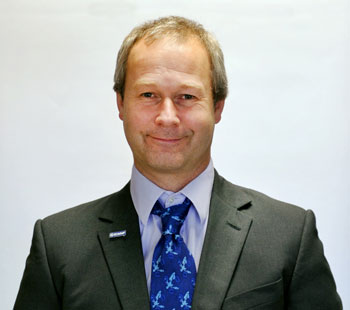The PASC18 Organizing Team is pleased to announce a keynote presentation by Nils Wedi from ECMWF, and to remind you that the deadlines for student travel grant applications and poster submissions are approaching.
PASC18 keynote presentation: From Weather Dwarfs to Kilometre-Scale Earth System Simulations
The European Centre for Medium-Range Weather Forecasts (ECMWF) leads a number of Horizon 2020 activities (ESCAPE) with innovation actions for developing a holistic understanding of energy-efficiency for extreme-scale applications using heterogeneous HPC architectures by: (a) defining and encapsulating the fundamental algorithmic building blocks (“Weather and Climate Dwarfs”) underlying weather and climate services; (b) combining frontier research on algorithm development with hardware adaptation using DSLs; (c) developing benchmarks and cross-disciplinary Verification, Validation, and Uncertainty Quantification (VVUQ) for weather and climate applications; and (d) synthesizing the complementary skills of global numerical weather prediction with leading European researchers.
This talk will illustrate the need for and practicality of producing ensembles of km-scale simulations, summarize progress on accelerating state-of-the-art global weather and climate predictions, and discuss outstanding issues and future directions on producing and analysing big weather data while balancing time-critical customer needs with energy- and time-to-solution.
Nils P. Wedi has a PhD from Ludwig-Maximilian University of Munich and joined ECMWF in 1995. His career at ECMWF encapsulates a diverse range of work both technical and scientific. He leads ECMWF’s Earth System Modelling section that addresses all aspects of scientific and computational performance relating to ECMWF’s forecast model and the ensemble forecasting system. He develops strategies to secure the scalability of the model on future high-performance computing systems. He is the scientific coordinator of the European H2020 projects ESCAPE and ESCAPE-2 to address the challenges of rising energy cost for computing towards affordable, exascale high performance simulations of weather and climate, and he is a member of the World Meteorological Organization working group on numerical experimentation (WGNE).
Student travel grants
We are pleased to remind you that this year, for the first time, PASC18 will offer travel grants to enable two undergraduate or postgraduate students to attend the conference. The travel grants are generously provided by SIGHPC, with PASC18 covering the corresponding registration fees.
Applications are due by February 14, 2018, and further information on the application process is available at: pasc18.pasc-conference.org/about/student-travel-grants/
Call for submissions reminder: the deadline is rapidly approaching!
We would like to remind you that the deadline for posters submissions is Sunday, February 4, 2018.
We look forward to receiving your contributions through the online submissions portal.
Full submission guidelines are available at: pasc18.pasc-conference.org/submission/submissions-portal/
PASC18 Scientific Committee: pasc18.pasc-conference.org/about/organization
Further information on the conference and submission possibilities are available at:pasc18.pasc-conference.org/

